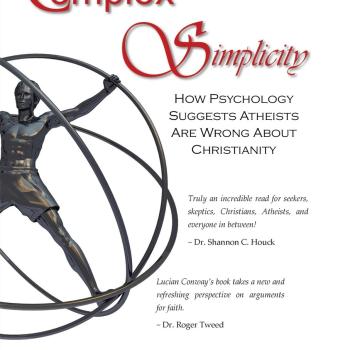
While the substance of this column is related to studies in religious psychology, Patheos has asked for my expertise as an approach for Christians selecting their denomination.
Any writer approaching this subject as a Christian insider is liable to do so by way of theological considerations, and it seems likely that such a writer would favor his or her denomination over others. It may surprise the reader to learn that this is a question upon which psychology has much to say. Further, my personal research into deconversion may come into play as well.
Select a Denomination Which Shares Your Values and Traditions
Numerous studies have shown that religion in general has beneficial effects on those who participate.
The reasons for this are a multitude, but among the most important is that religions provide a community which shares interests and values such that individuals within the religion may feel free to express their values in a way which they would not within a society which does not accept or share their values and traditions.
For instance, Muslims living in Holland report lower levels of life satisfaction due to the fact that Islam has very little foothold in Holland, and holds values not shared by the country at large. Consequently, these Muslims feel as if they need to censor themselves and keep their values to themselves as they interact with the larger community outside of their faith. While this article is about Christians selecting their denomination, the principle is the same: a church community which reflect one’s personal values and traditions may have the most mental and emotional health benefits due to the freedom one has to speak his or her mind and the acceptance that community has for his or her values.
Religion and Wellbeing
One of the largest and most ambitious studies on religion was conducted in 2018, and titled “Religion and Wellbeing.” The findings of this study were multitudinous. Religion, it was found, is very helpful to well-being, both mental and physical. The demographics who most benefitted from religion were the elderly, women, and minorities.
However, not all religions are created equal. For instance, the researchers found that Orthodox Jewish communities, although greatly benefitted by the mutual support and shared values of the community, did suffer some stress related to religious beliefs, specifically the intense need to observe the 213 Levitical laws, the feeling of being outcasts from their homeland, and the doctrine which suggests it is the Jewish destiny to suffer at the hands of other cultures.
The researchers found analogous mental health difficulties among Catholics due to the cultivation of guilt, and the compulsion to observe specific rituals and traditions in order to maintain one’s personal spiritual status (as opposed to those rituals meant to strengthen community).
Ultimately, the researchers concluded that the best combination of beliefs to support mental health and wellbeing are the following:
- A God who exercises justice, causing people to behave more honestly
- A God who exercises love and mercy, causing people to have less anxiety about mistakes
- A view of a meaningful and blissful afterlife
- The view that the afterlife may be obtained not by personal good works (an idea which leads to heightened levels of anxiety), but by the grace of God (a view which significantly reduces anxiety)
- A doctrine of Gratitude toward God, which multiple studies have shown to be beneficial to mental health
- A doctrine which promotes forgiveness of others
- A doctrine which teaches one ought not to be compared to others, but is acceptable as they are
- The promotion of prayer
- The promotion of worship
- Mutual celebration of religious holidays and rituals
A church or denomination which combines all of the above to a maximum degree would be, according to these researchers, the denomination which promotes maximal wellbeing.
Deconversion Avoidance
The specialty of this writer is research into religious conversion and deconversion. I have identified five practices of religious environments which are linked to higher levels of deconversion. These are as follows:
- Isolationism – religious environments which discourage engagement or interaction with the world outside the religious sphere
- Spiritualism – a heightened emphasis on personal spiritual experiences and on the supernatural
- Textualism – a woodenly literal approach to the Bible, and the discouragement of questioning the church’s interpretation of scripture
- Compulsory Certainty – a religious environment which pressures its members to not ask questions or express doubts
- Performance Control – an environment which uses tactics of shaming individuals as a way to control their behaviors
Based on my findings, the optimal denomination would allow or encourage its members to interact with the culture. This might include caution or preparation, but not forbiddance of cultural engagement.
An optimal denomination would not set expectations for its members that they should be having extreme spiritual experiences throughout their lives, and would avoid suggesting that the world is entirely controlled by spiritual forces. The first tends to lead to discouragement for those who do not feel they are meeting the quota for spiritual experience, and the second makes an enemy out of science, which is unnecessary.
The optimal denomination would allow or encourage questions about doctrine and exploration of doubts as opposed to silencing or repressing them.
And finally, the optimal denomination would avoid tactics of shame to address the behaviors of members. Perhaps the denomination would prefer the doctrines of Grace and Forgiveness, as mentioned in the previous section, over shaming.
Conclusion
What this article lists are the features of a denomination which maximizes personal growth and wellbeing as well as avoids losing members to deconversion. This article makes no statements about correct doctrine in reference to religious dogmas or scriptures. This is not an effort to diminish or sideline doctrine or scripture, but rather an effort to function within the space this writer occupies: psychology of religion.













